Wed, Jan 15, 2020
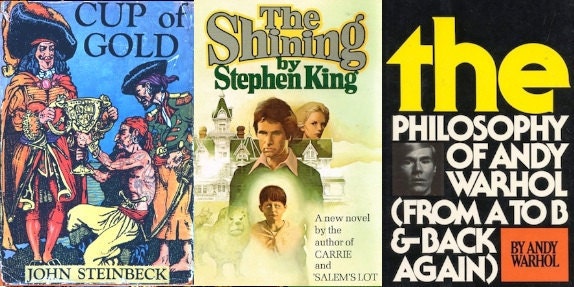
It seems as though the artists working on "The Shining" jacket couldn't decide if they wanted to go with a "Peyton Place" look or a "Star Wars" look and decided to compromise.
Tue, Jun 12, 2018
Unlike book club editions, reprint editions seldom resemble their trade edition counterparts. Well-known reprint houses include The Modern Library, A. L. Burt, Everyman's Press, Castle Books, Garden City Books, Tower/World Books, and Grosset and Dunlap. The latter two are often misidentified as publishers of book club editions, most likely on account of their habit, back in the day, of opportunistically stalking and scrounging the reprint rights to any modestly successful publication. Their imitation books, which appear to have been printed on recycled fast food napkins bound in covers made of compressed dust, were rushed to press right behind the trade editions.
Wed, Feb 28, 2018
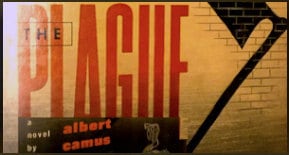
It sometimes happens you find a book you really, really want, or maybe just a book that's really valuable, except it smells like a dead possum in a toilet.
Sun, Nov 19, 2017
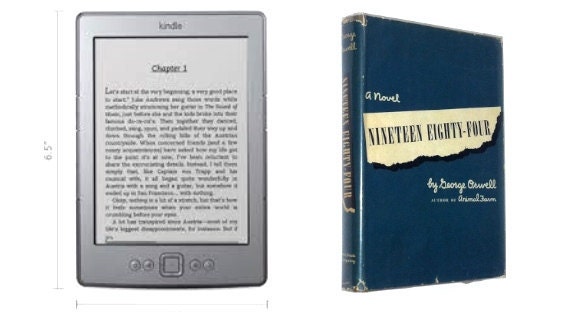
Let me guess. You think that analog books made out of dead trees are better than futuristic digital books made out of electrons? Wouldn't you rather read books on a landfill-grade plastic rectangle that spies on you and sells your data to marketing firms? Like how is that not better for everyone?
Here are eight reasons why ebooks are unironically the best:
1. They're not your books. They're content—content that you are licensed to use. You do not own them. So...
Sun, Nov 19, 2017
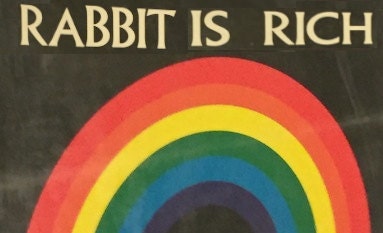
Rabbit Run, John Updike's second novel, was published in 1960. The story of Rabbit Angstrom, a hapless basketball jock adjusting to married life, earned extensive praise and elevated Updike to the first rank of American writers. His next two published novels, The Centaur (1963), and Of the Farm (1965) were acknowledged in polite terms by reviewers but ignored by the reading public.


 It seems as though the artists working on "The Shining" jacket couldn't decide if they wanted to go with a "Peyton Place" look or a "Star Wars" look and decided to compromise.
It seems as though the artists working on "The Shining" jacket couldn't decide if they wanted to go with a "Peyton Place" look or a "Star Wars" look and decided to compromise.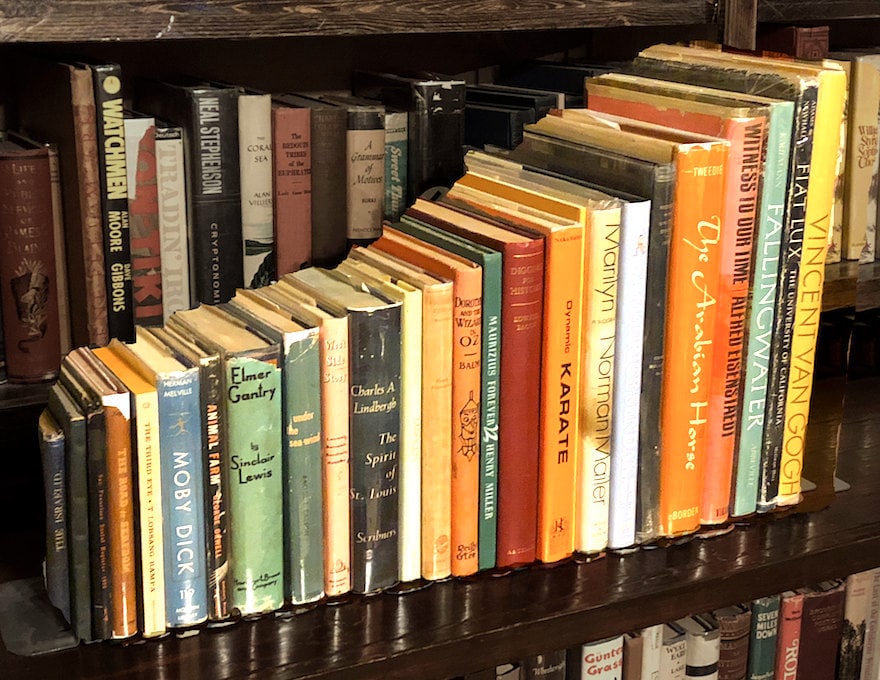
 It sometimes happens you find a book you really, really want, or maybe just a book that's really valuable, except it smells like a dead possum in a toilet.
It sometimes happens you find a book you really, really want, or maybe just a book that's really valuable, except it smells like a dead possum in a toilet. Let me guess. You think that analog books made out of dead trees are better than futuristic digital books made out of electrons? Wouldn't you rather read books on a landfill-grade plastic rectangle that spies on you and sells your data to marketing firms? Like how is that not better for everyone?
Let me guess. You think that analog books made out of dead trees are better than futuristic digital books made out of electrons? Wouldn't you rather read books on a landfill-grade plastic rectangle that spies on you and sells your data to marketing firms? Like how is that not better for everyone? Rabbit Run, John Updike's second novel, was published in 1960. The story of Rabbit Angstrom, a hapless basketball jock adjusting to married life, earned extensive praise and elevated Updike to the first rank of American writers. His next two published novels, The Centaur (1963), and Of the Farm (1965) were acknowledged in polite terms by reviewers but ignored by the reading public.
Rabbit Run, John Updike's second novel, was published in 1960. The story of Rabbit Angstrom, a hapless basketball jock adjusting to married life, earned extensive praise and elevated Updike to the first rank of American writers. His next two published novels, The Centaur (1963), and Of the Farm (1965) were acknowledged in polite terms by reviewers but ignored by the reading public.